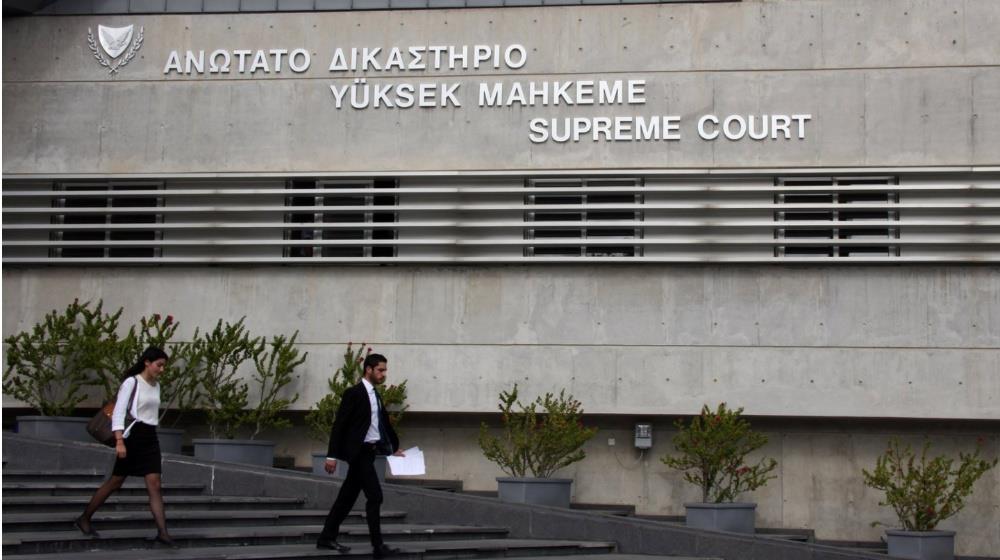A recent judgement by the newly established Supreme Constitutional Court of Cyprus has opened the way for owners of land expropriated by the state to seek damages if said compulsory acquisition order is revoked.
The case, Christodoulos Karmiotis Ltd v. Republic of Cyprus, focused on whether judicial proceedings challenging a compulsory acquisition order can continue even if the contested administrative act has been revoked.
The Supreme Constitutional Court overturned a lower court ruling that the mere revocation of an administrative act does not automatically extinguish the applicant’s interest in pursuing the claim.
Explaining the significance of the ruling for Cyprus’ real estate law, Harris Kyriakides law firm said it offers important clarification on the rights of property owners affected by acquisition processes that are ultimately abandoned by the state.
Acquisition order revoked while appeal pending
The case centred on property earmarked for acquisition to serve as a cultural centre for the Cyprus University of Technology (CUT). Although a compulsory acquisition order was issued in 2009, no compensation was paid and the state never took possession of the property. An administrative appeal had been pending since 2012, challenging both the preliminary notice and the acquisition order. In 2016, however, before the appeal could be heard, the compulsory acquisition order (also known as expropriation order) was formally revoked. The appellant insisted the case should proceed nonetheless, on the grounds that its rights had been adversely affected during the seven-year period in which the acquisition order remained legally effective.
When revocation renders a case moot
Traditionally in Cyprus, when an administrative act is revoked, any pending judicial review becomes moot unless the applicant can show a continuing legal interest – typically actual damage suffered while the act was in force. Applicants must demonstrate the existence of real harm, and provide the evidence to back it up. As Harris Kyriakides pointed out, historically, this has been a high threshold, particularly in cases where no physical dispossession or monetary loss could be easily quantified.
Christodoulos Karmiotis Ltd case: claims of loss of use and tenant departures
The applicant argued that the acquisition order restricted use of the property, rendering it impossible to develop, renovate, or commercially exploit the site. On top of this, the order prompted existing commercial tenants to leave the property. This, the applicant said, interfered with their constitutional right to property, which alone should suffice to justify continuation of the proceedings.
The Administrative Court dismissed the appeal, finding insufficient evidence of actual damage. The court rejected the notion that general claims of lost opportunity or “chilling effects” on development were enough to sustain legal interest in continuing a challenge to a now-revoked order. It held that the appeal had no remaining subject matter and should be dismissed accordingly.
Supreme Court majority: restriction of rights is enough
The Supreme Constitutional Court overturned the lower court's ruling, holding that the mere revocation of an administrative act does not automatically extinguish the applicant’s interest in pursuing the claim. The majority of the Court ruled that a continuing legal interest exists where an applicant can establish prima facie interference with their rights during the time the act was in force. Importantly, the Court acknowledged that even if a compulsory acquisition is never completed, the temporary restriction of property rights may still engage constitutional protections and give rise to a legitimate claim for redress.
It further held that the trial court applied an unduly rigid standard by requiring proof of actual monetary loss at the preliminary stage. Instead, a lower evidentiary threshold applies when determining whether proceedings should continue following revocation. The Court concluded that the applicant had shown sufficient prima facie impact – both through the alleged loss of tenants and the restriction on development or disposal of the property – and remitted the case to the Administrative Court for substantive determination on the lawfulness of the original order.
Minority view: no compensable damage established
While acknowledging that the right to property is constitutionally protected, a minority of the Court held that the revocation of the acquisition order had removed the legal basis for the appeal. They said the applicant failed to demonstrate concrete, quantifiable harm and had not submitted compelling evidence of damage caused by the temporary existence of the acquisition order.
Importantly, the minority said, by allowing proceedings to continue based on speculative or non-monetary harm, the Court risked opening the floodgates to challenges without sufficient legal substance.
What this means for expropriated real estate owners
The judgement marks a significant evolution in the Cyprus legal framework governing compulsory acquisition and state interference with real estate rights, says Harris Kyriakides law firm. It confirms that the temporary existence of a compulsory acquisition order – particularly where it remains in force for an extended period – can itself constitute a form of actionable harm.
This is particularly important for property owners, developers, and investors operating in Cyprus, especially in high-interest urban or redevelopment zones that may become subject to a compulsory acquisition order at any given time. Where an acquisition order is issued but not acted upon, owners may now rely on this decision to argue that their right to peaceful enjoyment of property was infringed, even if no physical possession was taken and no formal expropriation completed.
And as the law firm points out, the case is also a useful reminder to public authorities in Cyprus of the legal consequences of maintaining acquisition orders on the books for prolonged periods. Even when an order is eventually revoked, affected property owners may still seek judicial review and potentially claim compensation for the interim period in which their rights were restricted.
In broader terms, the decision aligns Cyprus’ administrative and constitutional law with European human rights standards by affirming that access to justice and the right to compensation are not lost simply because an administrative act has been revoked. While the final outcome of the Christodoulos Karmiotis Ltd v. Republic of Cyprus case will depend on the Administrative Court’s reassessment of the legality of the order, the Supreme Court has now set a precedent that strengthens the position of private parties in the face of abandoned compulsory acquisitions in Cyprus.









